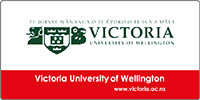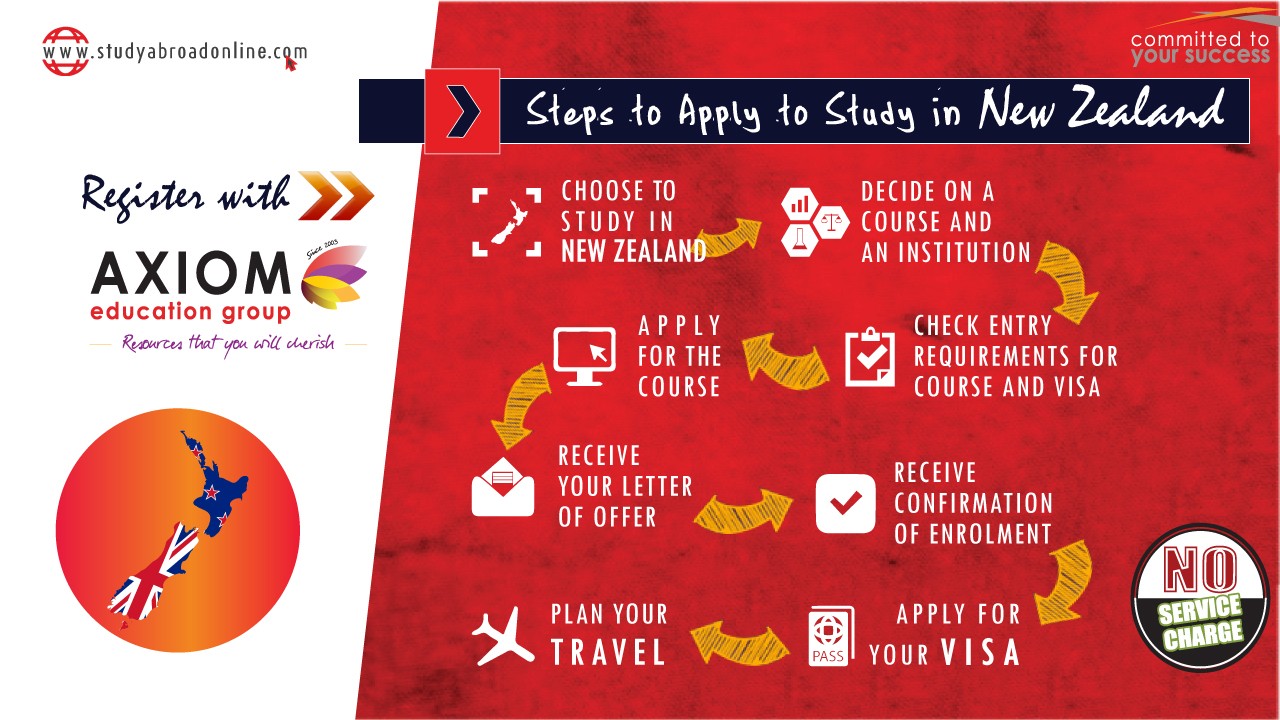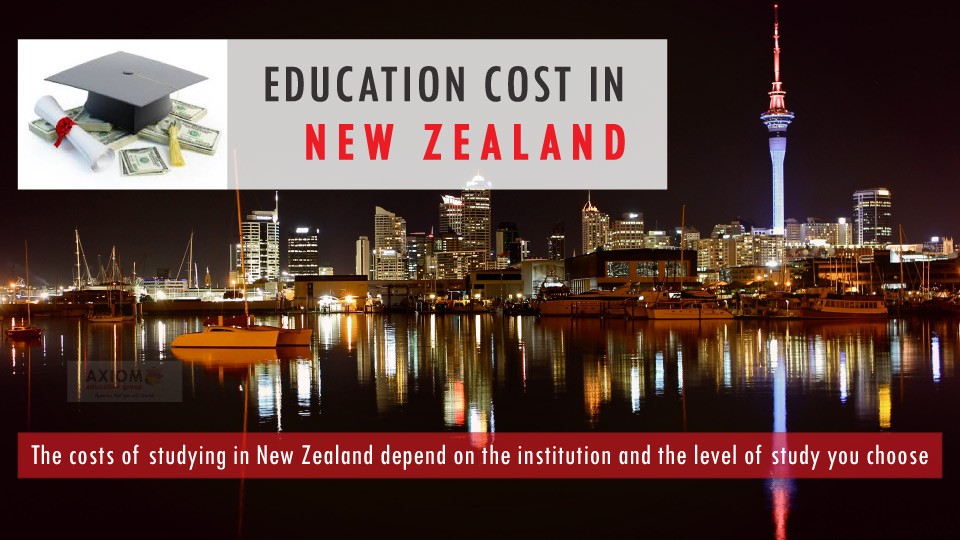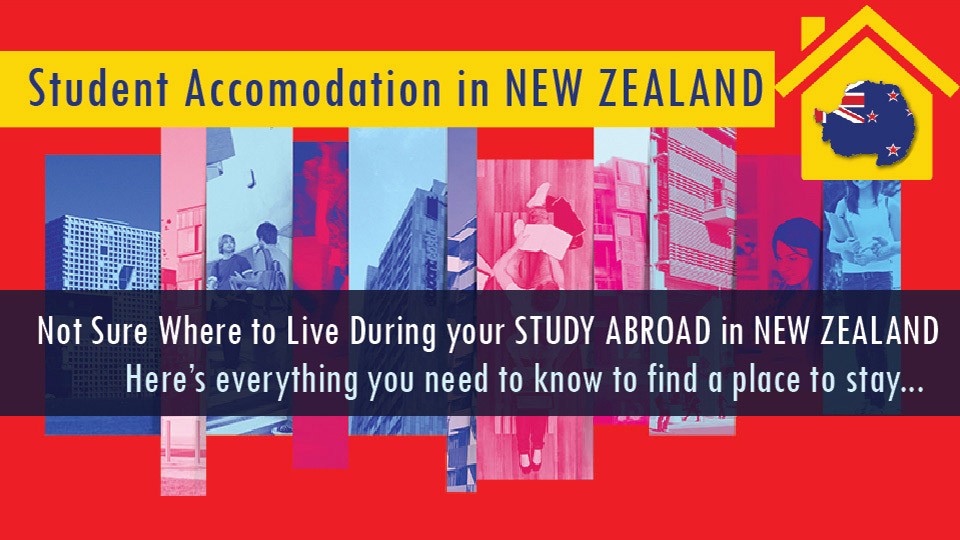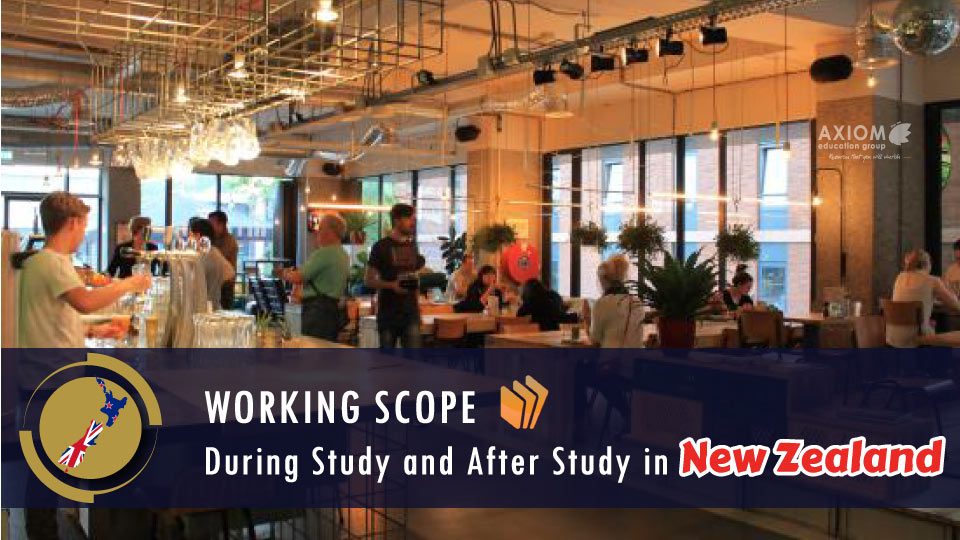
Are you planning to study in New Zealand? If so, we understand why! This country really seems to have it all: well-reputed universities, high quality of life, diverse communities, vibrant cities, stunning natural scenery and an unbeatable range of outdoor pursuits, all within a relatively compact area. Cities such as Auckland and Wellington offer no shortage of cultural activities, while for those with a passion for the great outdoors, the range of terrains to explore is mind-blowing – including glaciers, mountains, rainforest and of course plenty of coastlines.
Get ready for all the important information you need to make a decision about the study abroad in New Zealand! Click on the tabs below to find out about the top universities & colleges for Diploma, undergraduate & postgraduate programs in New Zealand and practical information on applications, admissions, fees, scholarships, visas, local life and more….

Depending on the length of the study, as well as nationality, either a visitor or student visa may be required. Citizens of the following countries may not require a visa if:
– staying 90 days or less
– studying one course
For longer stays, a student visa and/or a student permit may be required. Bangladeshi students need to apply for a visa to enter New Zealand.
Required by all entering New Zealand:
![]() a valid ticket to exit New Zealand
a valid ticket to exit New Zealand
![]() sufficient money for self-support
sufficient money for self-support
![]() a passport valid for 3 months beyond the scheduled date of departure from New Zealand
a passport valid for 3 months beyond the scheduled date of departure from New Zealand
In addition, those applying for a visitor’s visa may also need to supply the following:
Completed application form
![]() A recent passport-size photograph
A recent passport-size photograph
![]() Evidence of financial support or sponsorship
Evidence of financial support or sponsorship
![]() Evidence of onward travel
Evidence of onward travel
Student visa:
![]() Confirmation of placement at an approved educational institution.
Confirmation of placement at an approved educational institution.
Student visa NZ$200 (Bangladeshi Students)
The maximum period of time most visitors can remain in New Zealand is 9 months within an 18-month period.
Visitors not requiring visas are initially allowed a stay for up to 3 months, after which they can apply in New Zealand for an extension of up to 9 months
Other information:
Sufficient funds to cover the duration of stay.
This may be NZ$1000 for each person for every month or NZ$400 if the accommodation is already paid for.
You may apply for authority to work under the following circumstances:
![]() to fulfill course requirements; or
to fulfill course requirements; or
![]() up to 15 hours per week for tertiary students undertaking a long term course of study; or
up to 15 hours per week for tertiary students undertaking a long term course of study; or
![]() during the Christmas and New Year holiday period; or
during the Christmas and New Year holiday period; or
![]() on completing your course of study; or
on completing your course of study; or
![]() as a postgraduate student.
as a postgraduate student.
You must be of an acceptable standard of health. This is to ensure that you are:
![]() not likely to be a danger to public health; and
not likely to be a danger to public health; and
![]() not likely to be a burden on the health services; and
not likely to be a burden on the health services; and
![]() Fit for the purposes of entry.
Fit for the purposes of entry.
If you intend to study a course which is 24 months or longer you will need to provide a medical and x-ray certificate. Your medical and x-ray certificate must not be more than three months old at the time your application is lodged.
If there is an indication of any medical condition which could mean you may not meet the provisions above, you may be required to provide a medical and x-ray certificate if the intention is to stay in New Zealand less than 24 months.
In some countries, the New Zealand Immigration Service selects medical panels of registered medical practitioners and/or radiologists. If you are a resident in one of these countries, a panel member must complete your medical and x-ray certificate forms.
You may either refer to the list of countries using panel doctors or consult the nearest branch of the New Zealand Immigration Service for details of the appropriate panel doctor for your area.
If you are 17 years of age and over and intend to stay in New Zealand for a total of more than two years, you must provide a police certificate to show you are of good character. In order to prove you are of good character, you must supply the following:
![]() a police certificate from your country of citizenship; and
a police certificate from your country of citizenship; and
![]() Police certificates from any country you have lived for five years or more since reaching the age of 17 years.
Police certificates from any country you have lived for five years or more since reaching the age of 17 years.
Your police certificate must not be more than six months old at the time your application is lodged.
Information on how to obtain a police certificate from most countries is in Obtaining A Police Certificate booklet.
Most students are not entitled to publicly funded health services while in New Zealand unless they are a:
![]() Resident or citizen of Australia; or
Resident or citizen of Australia; or
![]() National of the United Kingdom in New Zealand; or
National of the United Kingdom in New Zealand; or
![]() Holder of a temporary permit that is valid for two years or more.
Holder of a temporary permit that is valid for two years or more.
![]() For advice on eligibility and/or entitlements, please refer to the Ministry of Health web site.
For advice on eligibility and/or entitlements, please refer to the Ministry of Health web site.
If you do not belong to one of these special categories and you receive medical treatment during your visit, you will be liable for the full costs of that treatment.
We strongly recommend that you have medical insurance for the duration of your stay in New Zealand.
You can be Refused a visa or Permit If:
![]() you do not meet the entry Requirements; or
you do not meet the entry Requirements; or
![]() you are not a genuine applicant for a study visa or Permit; or
you are not a genuine applicant for a study visa or Permit; or
![]() you are a person to whom Section 7 of the Immigration Act 1987 applies and you do not have an exemption.
you are a person to whom Section 7 of the Immigration Act 1987 applies and you do not have an exemption.
Student permits are issued to enable a person to undertake a particular course of study at a specified institution. Failure to do this may constitute a breach of the permit conditions, in which case the permit may be revoked. Educational institutions wishing to report students who have breached these conditions can do so.






